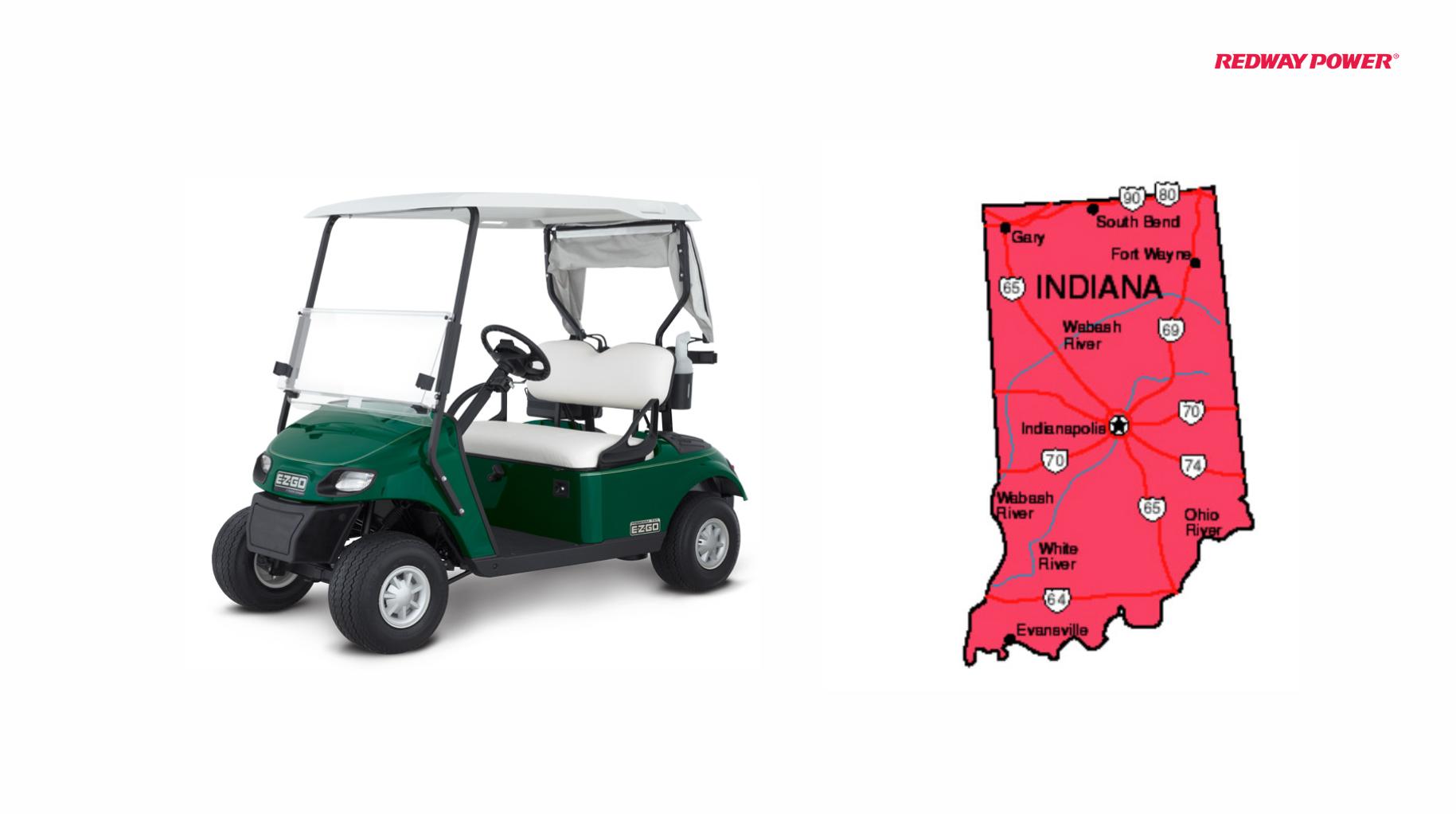Understanding Indiana’s golf cart and low-speed vehicle (LSV) laws is essential for safe and legal operation on public roads. In general, golf carts must comply with specific regulations regarding registration, safety standards, and local ordinances to ensure they are street legal.
What Are Indiana’s Golf Cart Laws?
In Indiana, golf carts are classified as vehicles designed primarily for use on golf courses but may be operated on public roads if local ordinances permit it. Operators must hold a valid driver’s license or meet age requirements set by local laws.
What Is the Definition of a Low-Speed Vehicle (LSV) in Indiana?
A low-speed vehicle is defined as a four-wheeled electric vehicle with a maximum speed of 35 mph that meets federal safety standards outlined in Title 49 of the U.S. Code of Federal Regulations.
How Do You Register a Golf Cart in Indiana?
To register a golf cart, owners must apply through their local city or county office, providing necessary documentation such as proof of ownership and compliance with safety regulations.
What Are the Requirements for Operating a Golf Cart on Public Roads?
Operators must adhere to local ordinances that may include age restrictions, licensing requirements, insurance coverage, and ensuring that the golf cart is equipped with necessary safety features like headlights and seat belts.
What Are the Safety Standards for Low-Speed Vehicles in Indiana?
LSVs must comply with federal motor vehicle safety standards, which include having working headlamps, tail lights, turn signals, brakes, mirrors, and seat belts at each designated seating position.
Can You Operate a Golf Cart on Highways in Indiana?
Golf carts cannot be operated on highways with speed limits exceeding 35 mph unless specifically permitted by local ordinances; they are typically limited to lower-speed roadways.
What Are the Penalties for Violating Golf Cart Laws in Indiana?
Violating golf cart laws can lead to fines or penalties as determined by local ordinances or state laws; repeated violations may result in increased fines or restrictions on operation.
How Do Local Ordinances Affect Golf Cart Use in Indiana?
Local governments have the authority to adopt ordinances regulating golf cart use on public roads; these regulations can vary widely between municipalities regarding registration requirements and operational restrictions.
What Are the Insurance Requirements for Golf Carts in Indiana?
Insurance requirements may vary by locality; however, it is generally advisable to have liability insurance to cover any potential damages or injuries resulting from operating a golf cart.
How Do Speed Limits Impact Golf Cart Operation?
Speed limits directly affect where golf carts can operate legally; they are restricted from areas with higher speed limits unless specifically authorized by local laws.
What Modifications Can Be Made to Golf Carts to Meet LSV Standards?
Modifications may include adding necessary safety equipment such as lights, mirrors, seat belts, and ensuring that the vehicle meets speed requirements; these changes help classify a golf cart as an LSV for legal operation on public roads.
Expert Views:
“Navigating the complexities of golf cart and low-speed vehicle laws in Indiana requires careful attention to both state regulations and local ordinances; understanding these guidelines will ensure safe operation while maximizing enjoyment.”
Golf Cart Laws and Regulations
FAQ Section
- Do I need insurance for my golf cart in Indiana?
Yes, while not always legally required, having liability insurance is highly recommended to protect against potential damages or injuries. - Can I modify my golf cart to make it street legal?
Yes, modifications such as adding lights and seat belts can help meet LSV standards necessary for street legality. - What should I do if I receive a citation for violating golf cart laws?
Review local regulations carefully and consider consulting with an attorney if you believe there has been an error regarding your citation.




